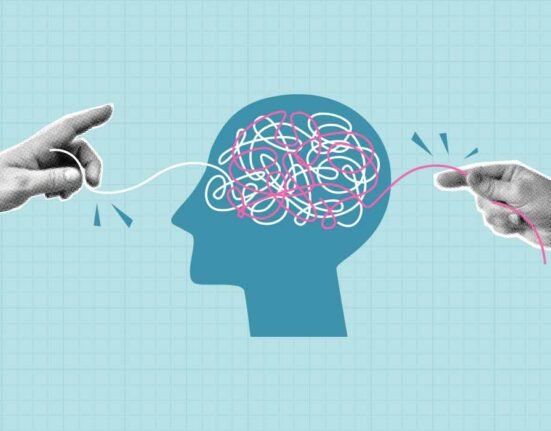Many people think psychologists are like wise gurus who simply tell you what to do to fix your problems. Thanks to movies and TV, the idea of a therapist saying, “You should do this,” has become quite common. But in real life, a psychologist’s role is much deeper—and much more helpful. They don’t hand out advice like answers from a magic book. Instead, they guide, support, and walk beside you as you figure things out for yourself. This approach isn’t just more respectful; it’s also what makes therapy work and keeps it ethical.
Why Giving Advice in Therapy Doesn’t Work
Imagine you’re stuck in a tough spot — maybe deciding whether to leave your job or stay in a difficult relationship. If a psychologist simply told you what to do, would that help in the long run? Sure, it might feel easier at that moment, but you’d probably end up leaning on others for answers instead of trusting yourself. It’s like the old saying: “Give a man a fish and you feed him for a day; teach him to fish and you feed him for life.” That’s what therapy aims to do—teach you to fish.
When a psychologist gives advice, they take the role of the expert in your life, which they’re not. You’re the expert. Your life is shaped by your history, values, strengths, and challenges. What’s right for someone else might not be right for you. Good therapy helps you find the answers that fit your life, not someone else’s.
The Real Tools: Listening, Questioning, and Building You Up
Instead of saying, “Here’s what you should do,” psychologists use skills that help you discover your path. Here’s how:
- Listening with Empathy: Before they can help, they need to understand you. That means listening closely—not just to your words but to how you feel. It’s not about agreeing or disagreeing—it’s about seeing the world through your eyes.
- Asking Thoughtful Questions: Rather than saying, “You should quit your job,” a psychologist might ask, “What are the pros and cons of staying?” or “What’s stopping you from making a change?” These questions help you reflect, explore, and get clear on what really matters to you.
- Challenging Negative Thinking: People often get stuck in patterns like “I always fail.” Instead of saying that’s wrong, a psychologist might ask, “Can you think of a time when you handled something well?” This gentle approach helps you shift your thinking and build a more balanced view.
- Teaching Practical Skills: Psychologists also help you build real-life tools. If you’re anxious in social settings, they won’t just say, “Go talk to people.” They’ll work with you on small steps, like practising conversations, calming your thoughts, and building confidence so you can handle situations on your own.
- Promoting Independence: The goal is always to help you become stronger, not more dependent. By not giving advice, psychologists help you trust your judgment and grow into someone who can face life’s challenges with confidence.
Why Giving Advice Crosses Ethical Lines
Aside from not being helpful, giving advice can actually be harmful and unethical. Psychologists follow strict professional guidelines, like those from the American Psychological Association (APA), which stress doing no harm, being honest, and always respecting clients’ dignity and choices.
- Helping Without Hurting: Psychologists are trained to help, but giving direct advice without knowing your full story can backfire. Even well-meaning advice might lead to regret or emotional harm if it doesn’t fit your values or situation.
- Respecting Your Right to Choose: Ethical therapists believe that you have the right to make your own decisions. Giving advice can feel like the therapist is taking over your life, which takes away your power and independence.
- Knowing Their Limits: Psychologists are experts in mental health, but not in every part of your life, like your finances, relationships, or career specifics. If they advise on those areas, they’re stepping outside their professional role, which can be dangerous.
- Keeping Boundaries Clear: Therapy works best when the roles are clear. If a psychologist starts acting like a life coach or parent figure, it can confuse things and hurt the trust between you. Clear roles keep the space safe and supportive.
When Ethics Are Ignored, It Can Be Harmful
Even though rules are in place, there have been times when psychologists crossed lines. For instance, in family courts, some psychologists have been criticised for making harmful comments about domestic abuse. When professionals let personal bias or lack of training guide their words, especially in serious cases, it can cause real damage. That’s why staying ethical, self-aware, and well-informed is so important in this field.
A Journey That Builds You Up
Being a psychologist is a powerful job. It’s based on a deep belief in people’s strength and potential. Instead of giving you answers, they help you explore your thoughts, face difficult feelings, and grow new skills. This journey, done together in a safe and respectful space, leads to lasting change. It’s not about giving advice—it’s about giving you the space and tools to find your way. And that, more than anything else, is what makes therapy empowering, ethical, and truly life-changing.
FAQs
1. Do psychologists give advice in therapy?
No, psychologists don’t usually give direct advice. Instead, they help you understand yourself better and guide you to find your own answers. This builds your confidence and helps you become more independent in handling life’s challenges.
2. Why can giving advice be harmful in therapy?
Advice might feel helpful in the short term, but it can make you dependent on the therapist. It may also not fit your values or situation, leading to confusion or regret. Therapy focuses on helping you trust your judgment.
3. How do psychologists help if they don’t give advice?
They listen deeply, ask thoughtful questions, and teach you practical skills. This approach helps you reflect, see things clearly, and handle problems better. It’s about helping you grow and make decisions that feel right for you.
4. What ethical rules do psychologists follow?
Psychologists follow strict ethics to protect your rights, privacy, and well-being. They avoid giving advice because it can cross professional boundaries, reduce your independence, and sometimes even cause harm if it’s not well-suited to your life.
5. What’s the real goal of therapy?
The main goal is to help you understand yourself and feel empowered to handle life’s challenges. Therapy isn’t about quick fixes—it’s about long-term growth, healing, and building the skills you need to thrive on your own.
References +
- https://ijme.in/articles/ethics-in-the-practice-of-clinical-psychology/?galley=print
- https://acceleratedresolutiontherapy.com/therapists-dont-give-advice-clients/
- MSEd, K. C. (2024, May 6). APA Code of Ethics: Principles, purpose, and guidelines. Verywell Mind. https://www.verywellmind.com/apa-ethical-code-guidelines-4687465
- Deering, S. (2024, November 14). 11 phrases to use instead of automatically giving advice, according to psychologists. Parade. https://parade.com/living/phrases-to-use-instead-of-giving-advice-according-to-psychologists
- Summers, H., & Tickle, L. (2025, January 31). Psychologist’s ‘alarming’ views on domestic abuse throw spotlight on family court experts. TBIJ. https://www.thebureauinvestigates.com/stories/2025-01-30/psychologists-alarming-views-on-domestic-abuse-put-spotlight-on-family-court-experts
- Nazish, N. (2024, November 7). How to overcome social anxiety disorder, according to psychologists. Verywell Mind. https://www.verywellmind.com/how-to-overcome-social-anxiety-8735103
- Giving advice versus psychotherapy. (n.d.). Claire Newton. https://www.clairenewton.co.za/my-articles/giving-advice-versus-psychotherapy.html
- Ethical principles of psychologists and code of conduct. (n.d.). https://www.apa.org. https://www.apa.org/ethics/code













Leave feedback about this